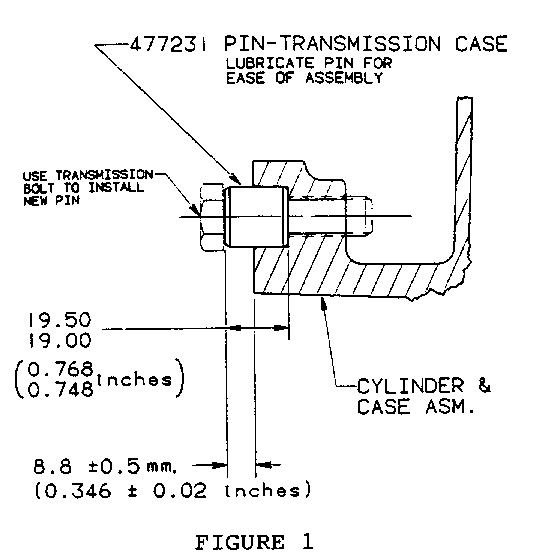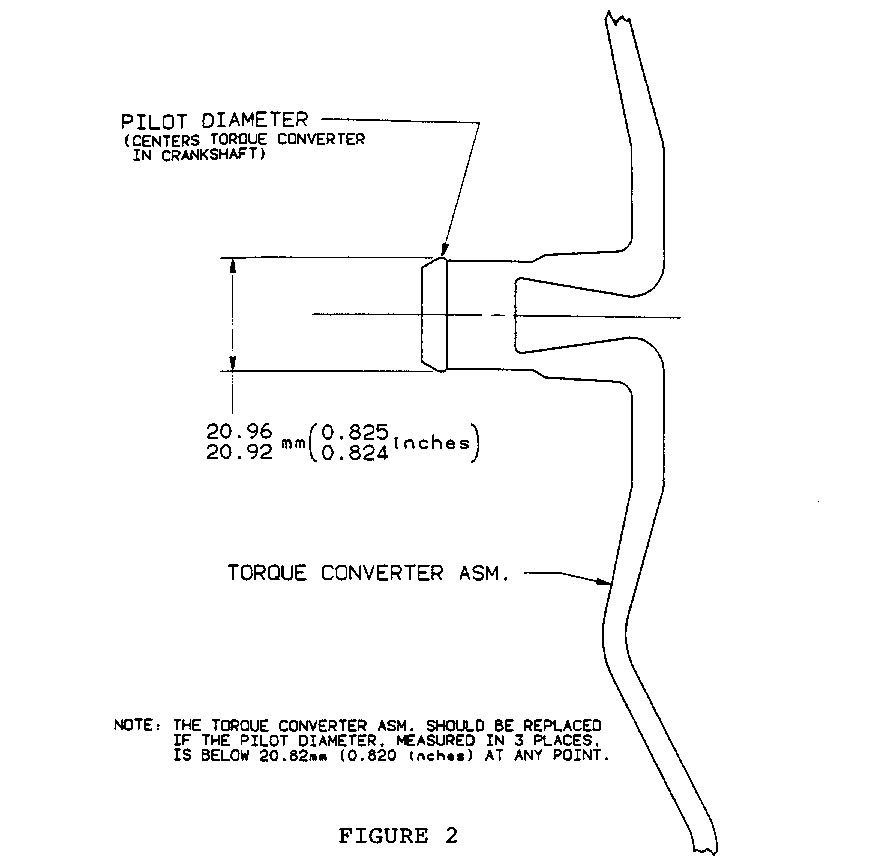TRANSMISSION FLEXPLATE CRACKS 2.8 W/ A/T -REPLACE DOWEL PIN

MODELS: ALL 1983-1987 S/T TRUCKS EQUIPPED WITH 2.8L (VIN CODES B AND R) ENGINES AND AUTOMATIC TRANSMISSIONS
Some 1983-87 S/T trucks equipped with a 2.8L V-6 engine and an automatic transmission may exhibit a noise comparable to an engine click or knock at the REAR of the engine. This condition may be due to a cracked flexplate assembly. If this condition is encountered, perform the following inspection and repair procedure as necessary.
1. Remove flywheel cover. Remove bolts attaching transmission torque to converter flex plate. Slide converter away from flexplate. Inspect flexplate to crankshaft mounting and torque converter bolt attaching areas for cracks. If cracks are evident, a transmission misalignment has occurred. Proceed to step 2.
2. Remove the transmission from the engine using the procedures in Section 7A -Automatic Transmission of the S/T Service Manual. Remove and replace the flexplate and perform the following procedure to insure that the root cause of the condition is eliminated.
A. Both 15.Omm (0.590") long transmission case dowel pins, located in the rear of the engine cylinder and case assembly must be removed and replaced with two 19.Omm (0.748") long dowel pins, P/N 477231. Pin removal can be accomplished with the use of an "easy-out" and large tee handle or other similar method. Care should be exercised to avoid damage/deformation to the precision machined locating counterbores in the cylinder case (block). Particular care should be taken to avoid cracking the cylinder case (block). Install the pins to a depth that provides 8.8mm (0.35") protrusion, as shown in Figure No. 1.
B. Inspect the torque converter pilot for wear. The amount of wear can be determined by measuring the outside pilot diameter at a minimum of three different places around the converter pilot, see Figure No. 2. If the diameter measures less than 20.82mm (0.82") at any location, then torque converter pilot wear has occurred and converter replacement is required.
C. Remove and disassemble the transmission front pump assembly. Inspect the pump facing, rotor and vanes for wear or damage. Replace the pump cover or pump assembly if damage or excessive wear is evident.
Inspect the bronze oil pump body bushing for excessive wear or evidence of movement within the pump cover. Replace the oil pump body bushing or the pump cover if necessary.
Inspect the transmission converter seal for evidence of leakage and/or lip wear. Replace the seal if leakage or wear is evident.
D. Inspect the transmission case for deformation in both locating counterbores. Repair any deformation by lightly filing or scraping the counterbores to insure proper engagement of the engine block locating pins.
NOTICE: THE TRANSMISSION COUNTER BORES ARE PRECISION LOCATING HOLES. EXCESSIVE METAL REMOVAL WILL RESULT IN ENGINE-TRANSMISSION MISALIGNMENT AND REPEATED FLEX PLATE CRACKING.
If the counterbore deformation is excessive and cannot be repaired, then install either a new transmission case or a service replacement transmission assembly (SRTA).
3. If the vehicle noise is not repaired after completing the above procedure, refer to the diagnostic repair procedures as illustrated in section 6A of the service manual.
Use Applicable Labor Operation and Time.


General Motors bulletins are intended for use by professional technicians, not a "do-it-yourselfer". They are written to inform those technicians of conditions that may occur on some vehicles, or to provide information that could assist in the proper service of a vehicle. Properly trained technicians have the equipment, tools, safety instructions and know-how to do a job properly and safely. If a condition is described, do not assume that the bulletin applies to your vehicle, or that your vehicle will have that condition. See a General Motors dealer servicing your brand of General Motors vehicle for information on whether your vehicle may benefit from the information.
